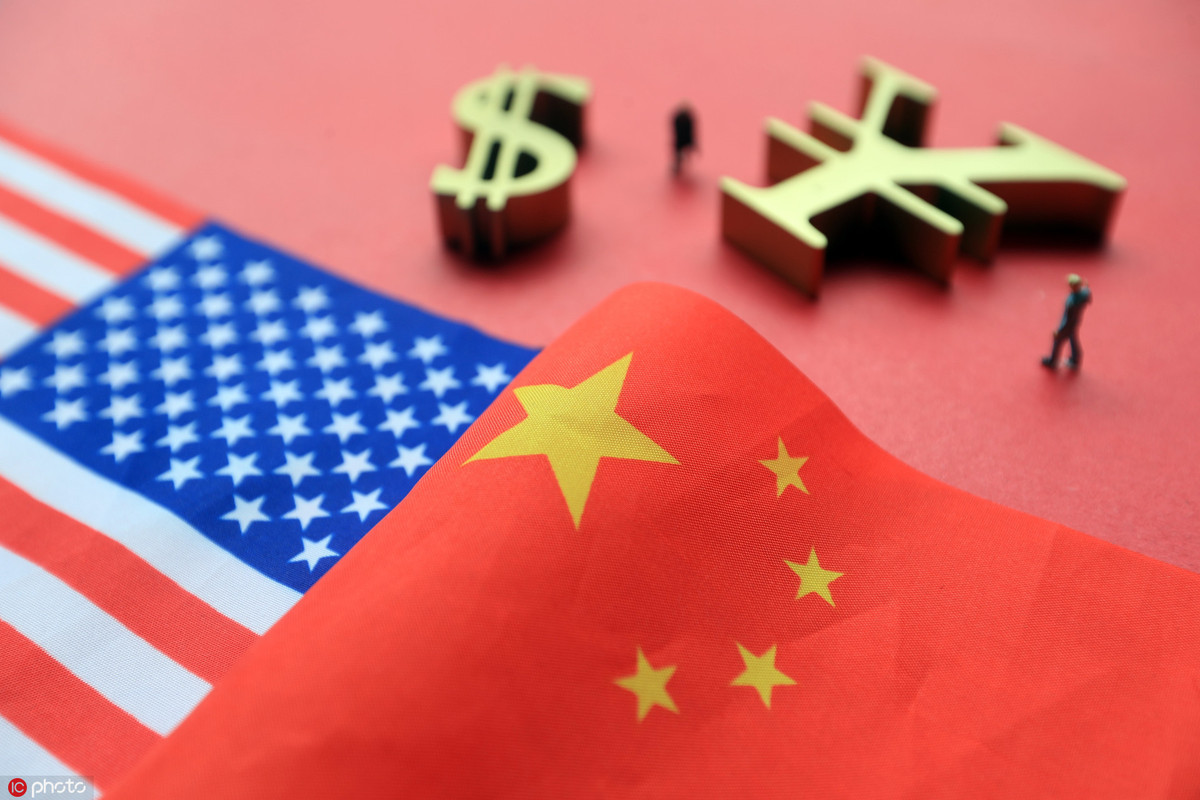China, US agree to solve issues on core concerns in trade talks


Top trade negotiators for China and the United States discussed solving issues regarding each other's core concerns and reached consensus on properly addressing related issues in a phone call on Tuesday morning, the Ministry of Commerce said.
Analysts said they hope both governments will further enhance mutual trust and seal a partial agreement, as a new study indicated that the US is absorbing the cost of hefty tariffs imposed on Chinese goods.
On Tuesday morning, Vice-Premier Liu He spoke by telephone with US Trade Representative Robert Lighthizer and Treasury Secretary Steven Mnuchin, the ministry said in a brief statement. They reached consensus on properly addressing core concerns, and both sides agreed to maintain communication on remaining issues in the phase one deal, according to the statement.
Other officials, including Commerce Minister Zhong Shan, Governor of the People's Bank of China Yi Gang and Vice-Chairman of the National Development and Reform Commission Ning Jizhe also joined in the call on Tuesday.
The talks followed a "constructive" phone conversation earlier this month.
Wei Jianguo, vice-chairman of the China Center for International Economic Exchanges, said: "Protectionism and beggar-thy-neighbor policies can no longer be sustained. The world should move toward stability, cooperation and mutual benefit."
He said mutual trust should be enhanced so the international community can better understand China's reforms and opening-up and become more willing to cooperate with China. Wei said he has confidence that China and the US, the world's two largest economies, will be able to strike a deal and get back on track.
Dong Yan, a research fellow at the Institute of World Economics and Politics of the Chinese Academy of Social Sciences, said, "Mutual trust is an essential factor for resolving China-US trade issues."
In order to reach a balanced trade pact, the two countries need to focus first on issues that are solvable and to understand each other's concerns, Dong said.
Negotiating teams for China and the US have been continuing talks since they outlined the preliminary deal in early October. Both nations have made moves in the previous months to ease tensions on such issues as tariffs and food imports.
In recent weekly briefings, the Ministry of Commerce has reiterated that a tariff rollback is a vital condition for sealing the deal with the US.
According to a study released on Monday by researchers at the Federal Reserve Bank of New York, the expectation that Chinese companies would bear the costs of tariffs imposed by the US government has not materialized.
The study — Who Pays the Tax on Imports from China? — was published on the bank's Liberty Street Economics blog.
"US businesses and consumers are shielded from the higher tariffs to the extent that Chinese firms lower the dollar prices they charge. US import price data, however, indicate that prices on goods from China have so far not fallen. As a result, US wholesalers, retailers, manufacturers and consumers are left paying the tax," the study said.
The duties on Chinese goods are collected at US ports by US Customs and have to be paid by the purchaser of the goods. The US purchaser basically pays a sales tax to Customs to import the items.
The study found that Chinese companies have not felt pressure to cut prices.
"Chinese firms could lower the prices they charge to offset the tariff hikes in order to avoid losing market share in the US. Chinese firms will be more prone to lower prices to the extent that they believe US purchasers can either do without their products or find alternatives from other suppliers," the authors wrote.
But the study found that prices on imports from China have been relatively stable despite higher tariffs. Prices on goods from China fell by 2 percent in dollar terms from June 2018, right before the first tariffs went into effect, to September 2019.
The drop is considered a small fraction of the amount required to offset the increase in tariff rates, some of which are 25 percent.
The study also found that imports of Chinese goods carrying tariffs have fallen annually by $75 billion since the second quarter of 2018, while imports of such goods without tariffs have been "roughly stable".
That means US consumers are buying fewer products from China than before, which has affected some industries that rely exclusively on Chinese products for their businesses.




































